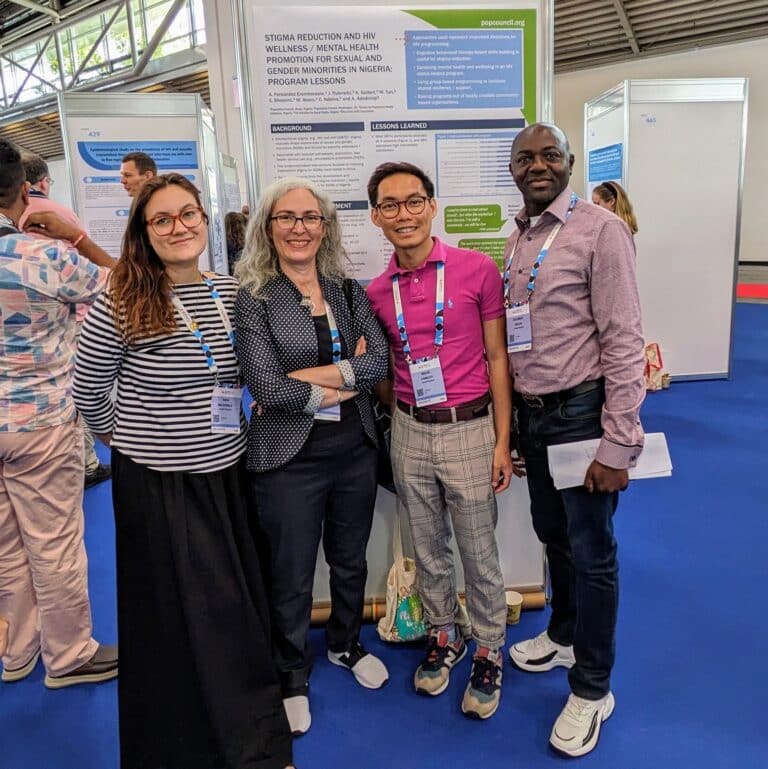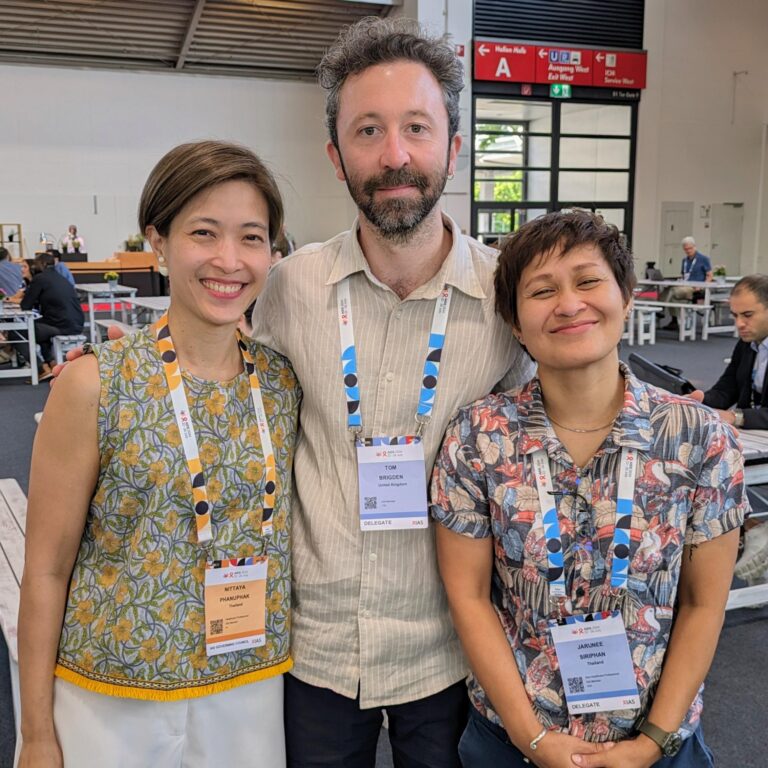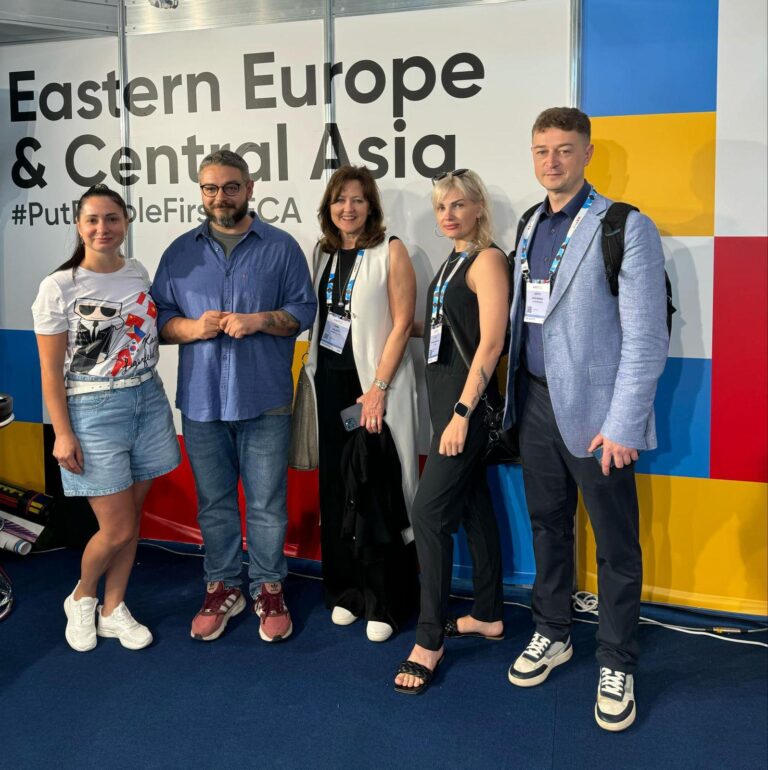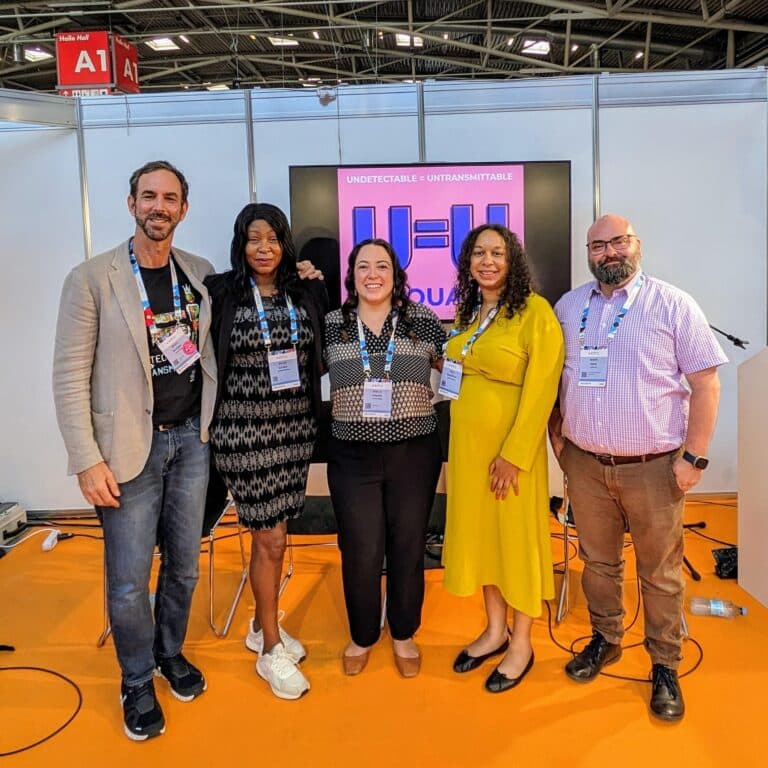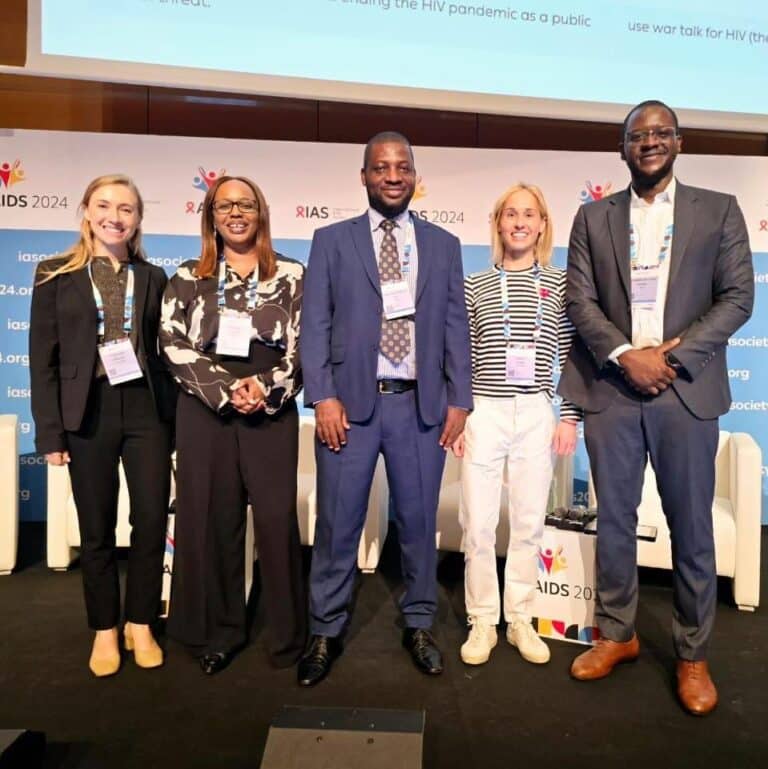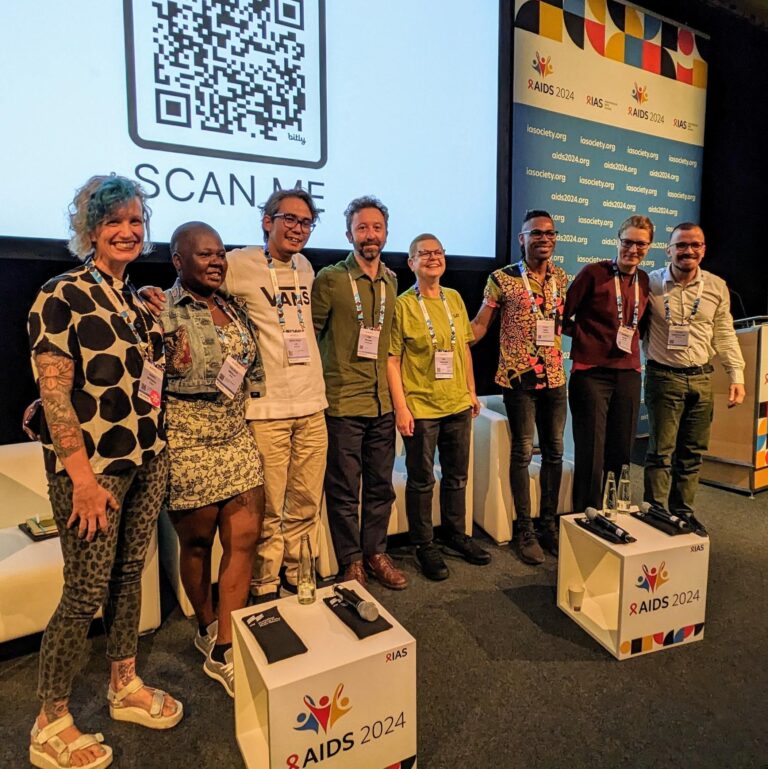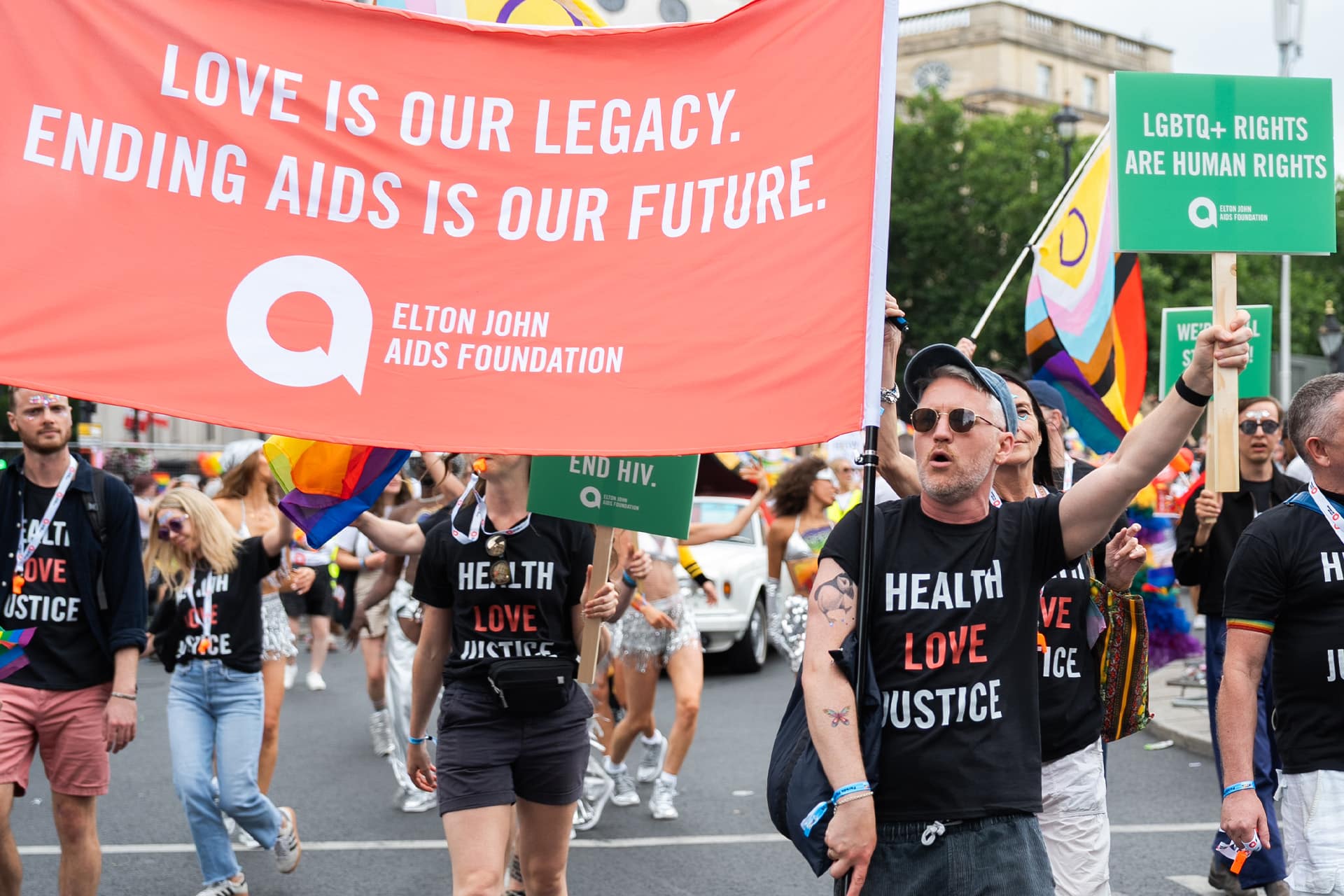It doesn’t make any difference how many services are delivered. If they are not driven by the community, they won’t work. – Anne Aslett, CEO of the Elton John AIDS Foundation
This year’s AIDS 2024 conference called on the urgent need to ‘Put People First’ to effectively, and equitably, get us to the finish line.
Enormous gains have been made in the HIV response yet the latest UNAIDS global HIV data shows us that in 2023:
- 1.3 million people were newly diagnosed with HIV
- 9.2 million people who are living with HIV are currently not on lifesaving treatment
- 630,000 people died from AIDS-related illnesses
Here are some topline takeaways from the AIDS 2024 conference, focusing on why putting people first is essential.
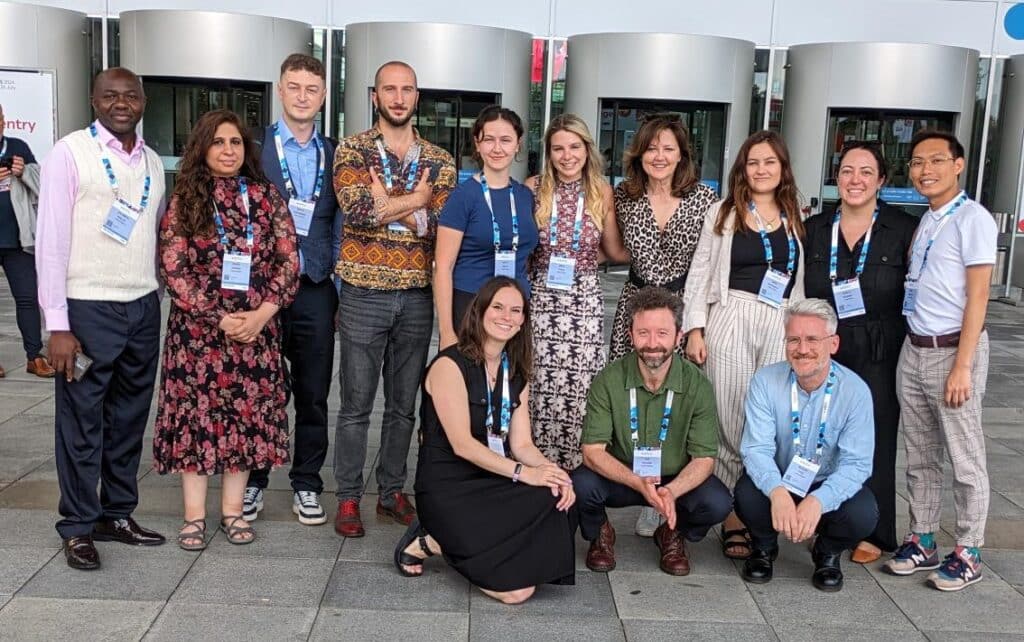
Putting people and communities at the heart of our efforts
A human-centered approach involves more than just medical treatment; it requires addressing the social determinants of health, such as poverty, stigma, and discrimination, which significantly impact people’s lives.
By focusing on the needs and experiences of the communities most affected by HIV, we can ensure more effective and compassionate interventions. This means:
- Listening to the people who will be accessing the services
- Involving them in the response
- Acknowledging and incorporating lived experiences
Putting people first means taking people’s opinions, their thoughts and their wishes into the design and implementation of programmes, especially programmes meant for them. – Columbus Ndeloa, Portfolio Lead
Sustainability: Ensuring Long-Term Impact
If over 1 million more people need to be treated for HIV every year, this really isn’t sustainable. – Peter Piot, former UNAIDS Executive Director (1995 – 2008)
Integrated and holistic approaches
Providing comprehensive care that addresses all aspects of a person’s health and well-being, including mental health, housing, and employment, is crucial for sustainability. This approach not only improves health outcomes but also enhances the quality of people’s lives.
This year, mental health integration was a prominent focus at the conference. “We know that if mental health is properly integrated into HIV services, we could see a reduction of 16% in new HIV cases by 2030” explained Lindsay Hayden, our Young People Portfolio Lead, while reflecting on our work with United for Global Mental Health, a partner of the Foundation. Lindsay closed out their session ‘A thoughtful dialogue on integrating mental health into HIV prevention, treatment and care’ by asserting that integrated care is a “no brainer” if we are to achieve our mission.
In many countries, laws and systems create barriers for communities accessing care and support. During a session that explored the future of the AIDS movement leading up to and beyond 2030, Tom Brigden, People Who Use Drugs Portfolio Lead, emphasized this issue: “How far can sustainability go if communities are still criminalized? We’re not going to end AIDS by 2030 if these barriers remain.”
To achieve health equity, we must adopt and fund holistic approaches, such as the decriminalisation of personal drug use, so that everyone feels safe to access compassionate care, including harm reduction services.
“Putting people first recognises that people don’t live single-issue lives,” Tom said. “The Elton John AIDS Foundation sees that and responds in a holistic way. We support people to mitigate their risk of HIV but also to address the other challenges that they are facing in their lives.
Reflecting on the meaning of putting people first, Noelle Esquire, US Portfolio Lead, added: “It means meeting people where they are and exploring how we can increase the accessibility of services, whether that is HIV prevention, testing or care.” To reach those most vulnerable, our work in the United States focusses on integrating HIV testing and PrEP into current models of service delivery.
Key Populations Uniting
Collaboration among key populations strengthens advocacy and support networks, making the overall response more resilient and effective. The AIDS 2024 conference provided a platform for these communities to share their experiences, challenges, and successes.
Bringing together diverse groups such as the LGBTQ+ community, young people, people who use drugs, and sex workers, the conference emphasized the power of solidarity. These key populations face unique and intersecting challenges, and by uniting, can:
- Share resources, strategies, and knowledge, leading to more innovative and effective solutions.
- Have a greater impact on policy-making and can more successfully push for legal and systemic changes that benefit all communities.
Ending stigma and discrimination once and for all
Those most vulnerable to HIV were vulnerable before HIV came into their life. – Anne Aslett, CEO, Elton John AIDS Foundation
Despite decades of awareness and advocacy, stigma and discrimination continue to hinder progress. People living with HIV often face judgment, exclusion, and a lack of understanding from their communities, workplaces, and even healthcare providers. These negative attitudes discourage individuals from seeking testing, treatment, and support, perpetuating the cycle of health inequity and marginalisation.
The AIDS 2024 conference highlighted several successful initiatives that have made strides in reducing stigma and discrimination, but also highlighted the scale of work still needed around the world.
The Elton John AIDS Foundation remains dedicated to ending stigma and discrimination once and for all, working to ensure that every individual affected by, or at risk of HIV can live a life free from fear and prejudice. By addressing these deep-rooted issues and promoting a culture of acceptance and support, we can make significant strides toward a world where everyone has equal access to the care and dignity they deserve.
